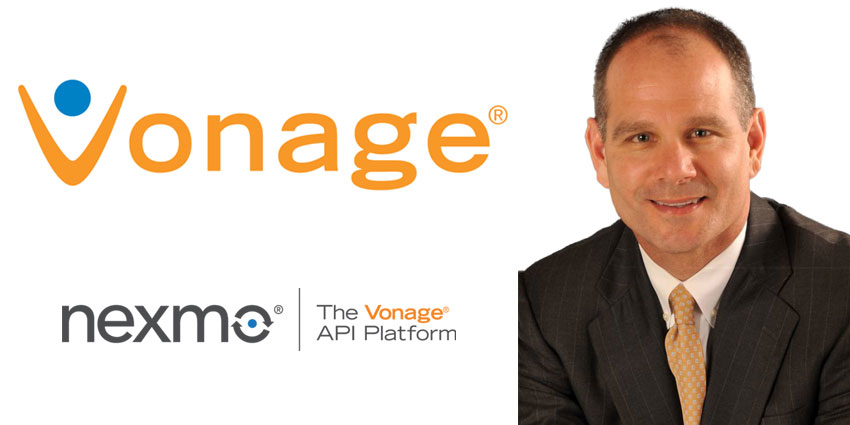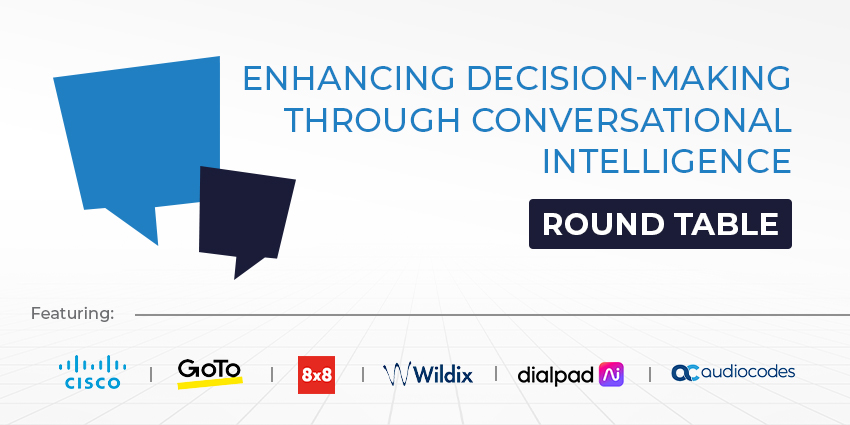Vonage is a company that recognises that the contact centre and communication space is ripe for both growth and disruption. Over the past year, Vonage has focused on expanding its participation in the contact centre space, and now offers a wide variety of solutions to fit every business, no matter the size, industry, or existing capabilities. True to the company’s roots as a technology disruptor, Vonage is also embracing programmable, intelligent technology designed to transform and innovate existing contact centre solutions.
I spoke to Alan Masarek, the CEO of Vonage, to learn more about the success that the company has seen recently and discuss where the organisation may be heading in the future.
Tell Us about Yourself, Vonage, and your Recent Success

Vonage is a cloud communications company designed to help businesses thrive by transforming the way they connect. Because Vonage was born and built in the cloud, they can offer flexibility,scalability, versatility, and no excessive upfront costs.
Alan Masarek has been CEO since 2014. He came to the company from Google, as a bit of a ‘serial entrepreneur.’ “I actually built a company and sold it to Google in 2012, then I was recruited to Google after that. I’ve been in technology for about 25 years now, either running established tech solutions or building rollups and other companies. What intrigued me about Vonage, was the chance to work with a company that had a huge background in the consumer section and reposition it to work for the business segment.”
Alan told me that Vonage took all the best assets of residential and used them to jump-start the brand into the business segment.
“We have relationships with all the peering companies in the U.S., and termination contracts with providers around the world. We jump-started our route to business through acquisitions and have continued to grow organically. Last year, business overtook the consumer segment in revenues for the first time, demonstrating the success of our transformation”
How Has Vonage Evolved as a Business?
On the surface, Vonage is a company that started in the small business market segment and gradually worked their way up. However, the truth is that the company is so much more than that. Alan noted that Vonage came from the consumer space – the classic “long tail” environment.
Our consumer segment is still a very important component of our business and has helped to fuel of transformation into a business communications leader, which is where we’ve been focused for the last five years. We’ve created our roadmap to success from day one by simply following customer demand. We started in SMB, with our first acquisition focused on SMB solutions – but that’s where the action was in terms of companies comfortable with moving to the cloud.”
Historically, larger enterprises had more trouble embracing a cloud solution, because they’ve been nervous about “ripping out the dial tone.” Today, the market is increasingly embracing the cloud for larger companies, and Vonage has followed that demand as it has emerged.
A Complete Span of the Market Now – Including Consumer
Once known primarily as a residential provider of VoIP, Vonage has evolved significantly over the past five years through a series of strategic acquisitions, as well as organic growth through a robust omnichannel sales model, to be one of the largest and fastest-growing cloud communications providers for business. Its unique cloud communications platform brings together a robust unified communications solution with the agility of embedded, contextual communications APIs powered by Nexmo, the Vonage API Platform. Alan told me:
“When you think about UCaaS and CPaaS, the focus has been largely on employee communications. Our view is that this whole shift in communications is a value chain that goes all the way from the customer to the employee.”
“What we’ve done is look for a strategy to marry the customer communications consideration in with employee communications, so that everyone gets a better experience all around for digital transformation.”

Vonage believes that the key to getting a strong value proposition in the UC space is focusing on both enhancing internal communications and collaborations for employees inside a company, as well as improving engagement with customers outside the company for deeper relationships and increased customer loyalty. Masarek told me that he often thinks about it like comparing Amazon to a brick and mortar company. Digital brands have more scalability and scope than a brick and mortar business. However, brick and mortar companies have the opportunity to connect with their customers on a deeper level.
“The CPaaS tools we provide allow you to connect more contextually with a customer. It gives agents background on customers needs so that they don’t have to explain their issue to multiple people. This restores that level of personalisation that the digital world misses out on, and it helps employees to be more satisfied by their jobs because they’re accomplishing their goals.”
With your increased focus on the contact centre over the last year, what trends are you seeing?
“The first thing is that the contact centre industry has long been focused on efficiency, reducing handling times, improving agent output and so on. Now, you’re seeing all kinds of things that are about making the customers experience better, from omnichannel and context to chatbots and AI.”
The other thing that Alan had noticed was a stronger focus on agent experience, and the ability to go virtual. Attrition has always been a common concern for the contact centre, and the ability to keep agents virtual means that they’re much easier to hire and retain.
“Even the concept of sentiment analysis comes in here, so you can see how the call is going and adapt as necessary. Supervisors can listen in, take over, and manage the interactions for agents.”
What Does the Future Look Like for Vonage?
Alan told me that Vonage has quadrupled their market cap recently, which makes for very happy shareholders, and they hope to continue moving with the same upward momentum. “I think that a lot will be unlocked with /unified-communications/cpaas and we’ll continue to see added growth. However, our view is that we’re going to become more of a platform company.”
Alan expanded on that comment by saying that the industry has become very siloed in its way of thinking. However, Vonage doesn’t think that CCaaS, CPaaS, and other SaaS offerings are separate – they believe in delivering a platform of functionality – communication as a service.
“I think the UCC, CC, and CP worlds are colliding together. In the past, where the conventional idea was that IT bought the PBX, customer success groups bought the contact centre and so on – now it’s just about creating the right communication stack.”
“It’s all about use case at the end of the day, and Vonage can deliver a service that suits a wide variety of use cases.”







